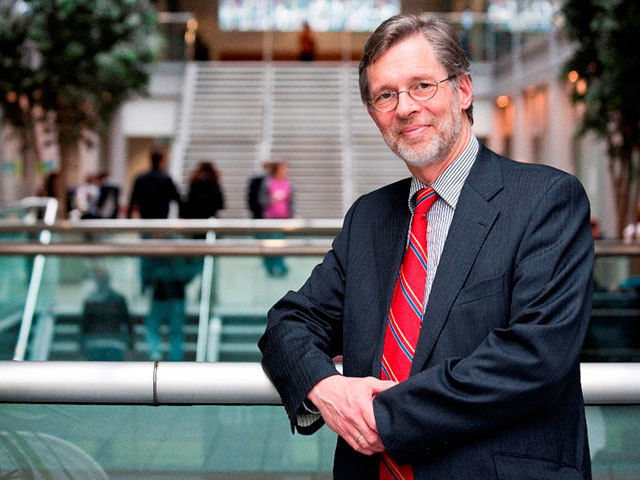
The principal of Robert Gordon University (RGU) has confirmed the institution’s commitment to investing in fossil fuels after he drew criticism for urging others not to divest.
Professor Ferdinand von Prondzynski said a trend for universities to divest their investment in fossil fuel companies risked sending the “wrong message” about the “responsible use of energy”.
The professor was under fire from green campaigners after a letter he wrote to fellow higher education principals urging them to resist divestment campaigns was leaked to a newspaper.
Dr Richard Dixon, director of Friends of the Earth Scotland claimed the university was “coming at this from an area of vested interest” in its support for fossil fuels.
Both Edinburgh and Glasgow Universities have pledged to reduce or sell off investments in big oil and related companies as part of a wider movement led mainly by student protesters and environmental campaigners to reduce funding for the global oil and gas industry.
Professor von Prondzynski said “there has been no suggestion from anyone, or any pressure from anyone, that we should take a decision not to invest in oil and gas or related shares”.
According to the university’s financial statements for the year ended 31 July 2014, RGU continues to hold stakes in a range of oil and gas firms including BP, Petrofac, Apache, Statoil, and CNOOC in a fund worth £7.2million.
Prof von Prondzynski argued that RGU’s investments were in line with its “strategic priorities” as part of its commitment to the industry.
He said: “RGU has identified oil and gas as one of its strategic priorities. We are in an oil and gas region, and the industry is vital for the current and future health of the economy and society of the north-east of Scotland.
“We are hugely committed to the region, and our focus on oil and gas reflects that. We also believe that high value training and research in oil and gas is important, as it supports greater safety, greater efficiency and a more responsible use of energy.
“We also support work in renewables. We have a Centre for Understanding Sustainable Practice, and we are partners in the Offshore Renewables Institute.
“We are also aware that the global development is impossible without the use of oil and gas, and this is important for the developing world in particular.
“All institutions should support the responsible use of energy, but this is achieved most effectively through greater innovation and the availability of high value skills. Divesting from oil and gas shares could send the wrong message about this important agenda.”
Recommended for you

